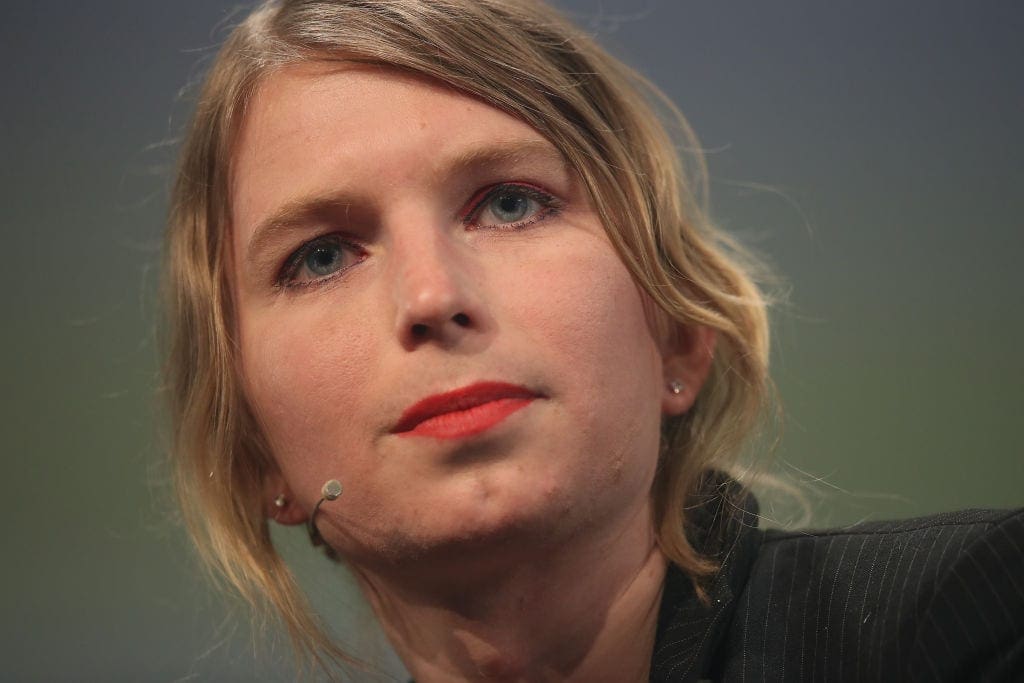Amnesty International and several of Australia’s top human rights organisations have said the lack of decision is chilling and is a galling restriction on the human right to free speech, that strongly questions the value our Government places on freedom of expression and political opinion.
Chelsea Manning was invited to Australia by Think Inc, for a series of talks which included discussion of the potential human rights violations she exposed as a whistleblower and her human rights activism in and since prison, including as an outspoken LGBTQI rights advocate. Ms Manning will instead appear via video link at all the scheduled events.
Claire Mallinson, National Director at Amnesty International Australia said: “By failing to approve a visa for Chelsea Manning, our Government has silenced an important voice on human rights and in doing so sends a message to the people of Australia, and to the international community, that this new Australian Government places little value on freedom of speech.”
Tim Singleton Norton, Chair of Digital Rights Watch said: “This is nothing more than a political stunt designed to appease the current US administration, and an unnecessary imposition on the movements of a world renowned civil rights activist. The Australian Government talks a lot about freedom of speech, but this rarely seems to be extended to defend those who profess opinions that are not aligned with their own.”
Paul Oosting, National Director for Getup! said: “Mr Dutton has boasted repeatedly about his common sense approach to immigration, but here he is denying Australians the opportunity to engage in conversation with a renowned human rights whistleblower. It seems that under this Government Chelsea Manning would have more chance getting into the country if she was an au pair for one of Peter Dutton’s mates.”
Hugh de Kretser, Executive Director of the Human Rights Law Centre said: “As a democracy we should be encouraging not banning contributions from people like Chelsea Manning. This is yet another example highlighting the need for far stronger checks and balances over the Minister’s powers under migration laws.”
Dr Monique Mann from Australian Privacy Foundation said: “This decision highlights the subjectivity of Australia’s current immigration controls, and the scope for politicisation. The NZ process for instance, where a Special Direction Visa has been granted for Chelsea, is more objective, focusing on the negligible risk of re-offending or breaching visa conditions.”
Lyndsey Jackson, Chair of Electronic Frontiers Australia said: “It is appalling that New Zealanders are afforded the opportunity to hear Ms Manning share her experiences in person, but Australians who had bought tickets to sold out events across the country miss out.”
George Newhouse from the National Justice Project said, “The Australian government saw fit to welcome General Petraeus to Australia. He was convicted for disclosing Secret materials, a much higher classification than anything Chelsea Manning released. The government’s hypocrisy is yet another shameful episode in Australia’s diminishing reputation within the international community.”
Our organisations believe that failing to allow Chelsea Manning entry to Australia based on a past criminal conviction is an impermissible restriction on her right to freedom of expression and hampers her legitimate human rights work.
Chelsea Manning should not continue to face penalties after the time she served in jail and the commutation of her sentence by presidential order. She should have been granted a visa to enter Australia and be free to tell her story to Australian citizens who wish to hear it.
Background
- Chelsea was set to speak at events organised by Think Inc. an organisation focused on promoting discussion and debate in Australia and internationally. Events included ANTIDOTE at the Sydney Opera House on September 2 and, in Melbourne on September 7 and Brisbane on September 11.
- Chelsea Manning was sentenced in the USA to 35 years in prison after releasing information that pointed to potential human rights violations and crimes under international law by US and other armed forces. The trial was marred by due process shortcomings. Key documents were withheld from her defence team, who were only permitted to call 10 of their 48 witnesses while the prosecution called 80. The trial entailed many closed sessions, court records were kept secret, and key defence arguments were preemptively eliminated. Initial claims that the release led to harm to armed forces personnel were not substantiated, although these discredited allegations are still repeated by external critics.
- Chelsea Manning served 7 years in prison, three of those years were in pre-trial detention, 11 months in conditions which the UN Special Rapporteur on Torture described as cruel and inhumane.
- Her sentence was commuted by President Obama in January 2017; in doing so, the US President observed that her sentence was excessive when compared with similar offences by others.

